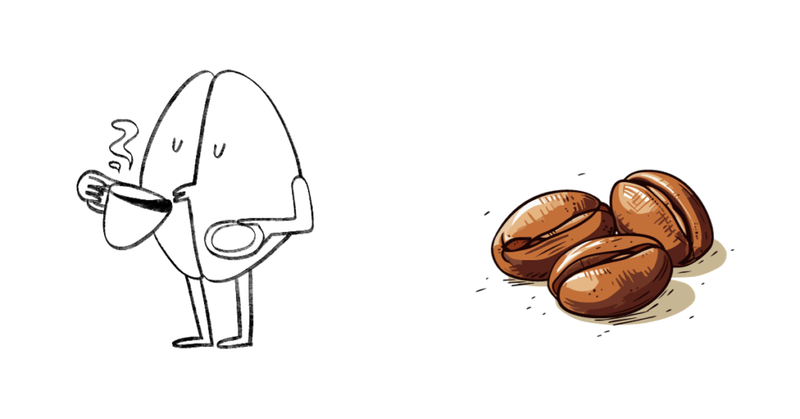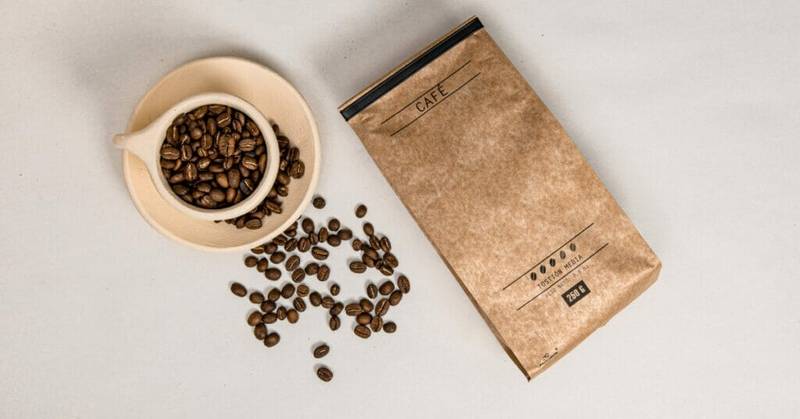Does coffee expire? Using expired coffee beans is a common dilemma for many coffee enthusiasts. Discovering eco-friendly alternatives for your used tiny coffee beans is a fantastic way to contribute to sustainability. Expired coffee beans can find new life in various practical and creative ways, urging you to rethink disposal. Coffee beans don’t degrade like typical food products. They won’t mold or cause illness after expiration as long as they’re stored dry. So, health-wise, you’re safe even if the date has passed.
Ways to repurpose expired coffee powder:
- Fertilize Your Garden for better plant growth.
- Compost It for later use.
- Repel Insects and Pests.
- Remove Fleas from Your Pet.
- Neutralize Odors around your home.
- Use It as a Natural Cleaning Scrub.
- Scour Your Pots and Pans effectively.
- Exfoliate Your Skin for a natural skincare option.
Caffeine remains stable in coffee; leaving it out won’t alter its content over time. However, the temperature of water used for brewing doesn’t significantly affect the amount or potency of caffeine released by the coffee.
Before discarding, Can I Use Expired Coffee Beans, consider their potential to impact your surroundings positively. Embrace a greener lifestyle by incorporating these simple and resourceful ideas, making a meaningful difference in reducing waste and promoting reuse.
As an affiliate site, we are associated with the amazon. We might receive a commission when you use links or recommendations on our website to make qualified purchases. The cost you pay for the goods or services is unaffected by this.
Table of Contents
Can I Use Expired Coffee Beans || 11 Useful Hacks of Old Coffee Beans

Before exploring creative uses for leftover coffee beans, watch this video highlighting eight compelling reasons to repurpose your coffee grounds instead of discarding them.
1. Ward Away Pests
Expired coffee beans provide a natural and cost-effective way to ward off pests in your garden or home.
The pungent aroma of coffee is a potent deterrent for certain pests like ants, snails, and slugs.
To use them as a pest repellent, scatter coffee grounds in areas where you’ve noticed pest activity.
The scent will be a barrier, discouraging these critters from invading your space.
This eco-friendly approach not only helps protect your plants but also promotes a pest-free environment without the need for harsh chemicals.
2. Make Your Plants Happy with Natural Fertilizers
Expired coffee beans can be a boon for your garden.
Coffee grounds are a rich source of nitrogen, which serves as an excellent natural fertilizer for plants.
Simply mix the grounds with soil to enhance nutrient content, and watch your plants thrive.
Coffee grounds also help improve soil texture, water retention, and aeration, making them a fantastic eco-friendly choice for gardening enthusiasts.
3. Absorb Unwanted Odors
The natural ability of expired coffee beans to absorb and neutralize odors makes them a versatile solution for tackling unwanted smells.
Whether it’s the lingering scent in your refrigerator, the musty odor in your shoes, or the stuffy atmosphere in your car, a container of dry coffee grounds can work wonders.
By placing coffee grounds in the affected areas, you can effectively absorb and replace unpleasant odors with the comforting aroma of coffee.
It’s a simple, eco-friendly way to maintain a fresh and inviting environment in your living spaces.
4. Remove Strong Smells From Your Hands
If you’ve been handling strong-smelling ingredients in the kitchen, expired coffee beans can come to the rescue.
Simply rub your hands with the grounds to eliminate lingering odors like garlic or fish.
The abrasive texture of the grounds also acts as a gentle exfoliant, leaving your hands fresh and clean.
5. Pamper Your Skin
Coffee grounds can serve as a natural exfoliant in skincare routines.
Mixed with coconut oil, they make a fantastic scrub that can help remove dead skin cells and leave your skin feeling soft and rejuvenated.
Plus, the caffeine in coffee can help improve blood circulation, potentially reducing the appearance of cellulite.
6. Scrub Your Pots, Pans and Sinks
The abrasive nature of coffee grounds makes them excellent for tackling stubborn stains on pots, pans, and sinks.
When mixed with a bit of soap, they create a powerful, eco-friendly scrub that can remove grease and grime effectively.
7. Boost Your Compost
Adding expired coffee grounds to your compost pile enhances its quality.
Coffee grounds provide valuable organic material, while their acidity can balance the pH levels of the compost, promoting healthy decomposition and ultimately enriching your garden soil.
8. Repair Scratched Wooden Furniture
If you have scratched wooden furniture, you can create a simple paste with coffee grounds and a bit of water.
Apply it to the scratches, let it sit, and then wipe it off.
This method can help mask the scratches, giving your furniture a renewed appearance.
Expired coffee grounds can be a handy tool for reviving scratched or scuffed wooden furniture.
The abrasive texture of coffee grounds, when combined with a bit of water, forms a paste that can be used to gently rub and fill in minor scratches on the wood’s surface.
This DIY solution not only conceals imperfections but also enhances the overall appearance of your furniture, saving you the cost of professional restoration or refinishing.
9. Espresso Beans For a Snack
If you have espresso beans that are past their prime, consider coating them in chocolate to create a delightful snack.
Melt your favorite chocolate, dip the beans, and let them cool for a tasty treat that combines the rich flavors of coffee and chocolate.
10. Marinate Meat
Coffee-based marinades can infuse a unique depth of flavor into meat.
Combining coffee grounds with spices, oil, and other seasonings creates a robust and aromatic marinade that works particularly well with red meats.
It’s a simple yet effective way to elevate the taste of your dishes while using expired coffee beans.
11. Coffee Ice Cubes
Like desserts, coffee ice cubes don’t require freshly brewed coffee to fulfill their purpose. You can prepare these in advance and incorporate them into your iced coffees or cold brews, ensuring that your beverage remains rich and flavorful without becoming diluted over time.
This convenient method allows you to enjoy a refreshing and undiluted coffee experience. It is a practical solution for those who prefer to plan and savor the entire essence of their chilled coffee drinks.
Is it safe to consume Coffee Beans that are 20 years Old?

If flavor preservation is a priority, storing coffee in an airtight container in a cool, dry, and dark environment is recommended. When stored under these conditions, ground coffee remains suitable for consumption for several months beyond its expiration date.
Whole coffee beans can maintain their quality for up to nine months, while instant coffee exhibits a longer shelf life, extending up to two decades. This optimal storage approach ensures that your coffee maintains its freshness and flavor profile over an extended period, allowing you to enjoy a satisfying cup even after some time has passed.
Can Coffee Beans spoil, and is it safe to consume Coffee that has passed its Expiration date?

Here’s the update – the good news is that coffee doesn’t exactly “spoil” like perishable items do. If you’ve got old beans and the expiration date is in the rearview mirror, you’re in the clear health-wise, though the flavor might not be tip-top.
However, there’s a catch: once your coffee grounds get wet, you can’t recycle them. And if a brewed pot of coffee sits around long enough, it can take a turn for the worse and grow mold. Nobody’s a fan of rancid or week-old coffee.
Now, for the less-than-great news: coffee quality declines over time. Oxygen is the arch-nemesis of freshly roasted coffee beans or grounds. Exposure to air leads to a breakdown, resulting in a loss of flavor and intensity. Even though the beans won’t technically spoil, it’s best to enjoy them within three to four weeks of purchase. For ground coffee, aim to finish up within two weeks.
The shelf life of Whole Beans surpasses that of pre-Ground Coffee
Preserving the freshness of coffee hinges on proper storage, and the method depends on whether the coffee is in whole bean, ground, or pod form.
Storing whole coffee beans:
The shelf life of whole beans surpasses that of pre-ground coffee. Keeping them in an airtight container is essential for optimal freshness. Alternatively, the original bag is suitable, provided you remove excess air and seal it tightly. Opting for an airtight container with a vacuum pump, like an OXO Pop container, is recommended. Additionally, it’s crucial to store them away from heat and sunlight.
Storing ground coffee:
Grinding whole beans before brewing ensures the freshest flavor, and pre-ground coffee offers convenience. The storage method remains the same as for whole beans: use an airtight container and keep it away from heat and light.
Storing coffee pods:
Avoiding exposure to light and heat is essential for single-serve machine coffee pods. Although they are already sealed, placing them in a jar or another airtight container is a good practice.
Contrary to a common misconception, storing coffee beans and grounds in refrigerators is not advisable. Coffee beans are absorbent and can take on odors from the refrigerator. Moreover, the fridge can dehydrate the beans, accelerating staleness.
The freezer is a better option for extended storage, but proper precautions are necessary. Place the coffee in its original bag inside a Ziploc bag, remove excess air, and store it in the freezer. This method allows preservation for a few months without compromising quality. Thaw the coffee completely before brewing. It’s important to note that once coffee is thawed, it shouldn’t be returned to the freezer, as frequent temperature fluctuations can degrade the beans.
Can I Use Expired Coffee Beans || FAQS
What Is the Disadvantage of Expired Coffee?
The main drawback of expired coffee is a loss of taste, aroma, and freshness, resulting in a potentially stale, flat, bitter, or off-putting flavor.
Does Nescafe Coffee Expire?
When stored correctly, an opened container of NESCAFÉ instant coffee typically maintains its best quality for 12 to 18 months at room temperature.
Does Complex Coffee Expire?
Typically, Twelve5’s Rebel Hard Coffees remain fresh for up to 12 months from the packaging date.
Does Black Coffee go Bad?
Typically, hot black coffee starts losing its flavor after just 30 minutes and can last up to 24 hours at room temperature before spoilage concerns arise.
Wrapping Up
In conclusion, “Can I use expired coffee beans?” invites us to be creative and resourceful in our coffee journey.
While the flavor may not be as vibrant, expired coffee beans can still find a purpose in your kitchen.
Whether for cold brew or culinary experiments, they need not go to waste.
Embracing the potential of these aging beans ensures that your love for coffee remains a sustainable and enjoyable part of your daily routine.







